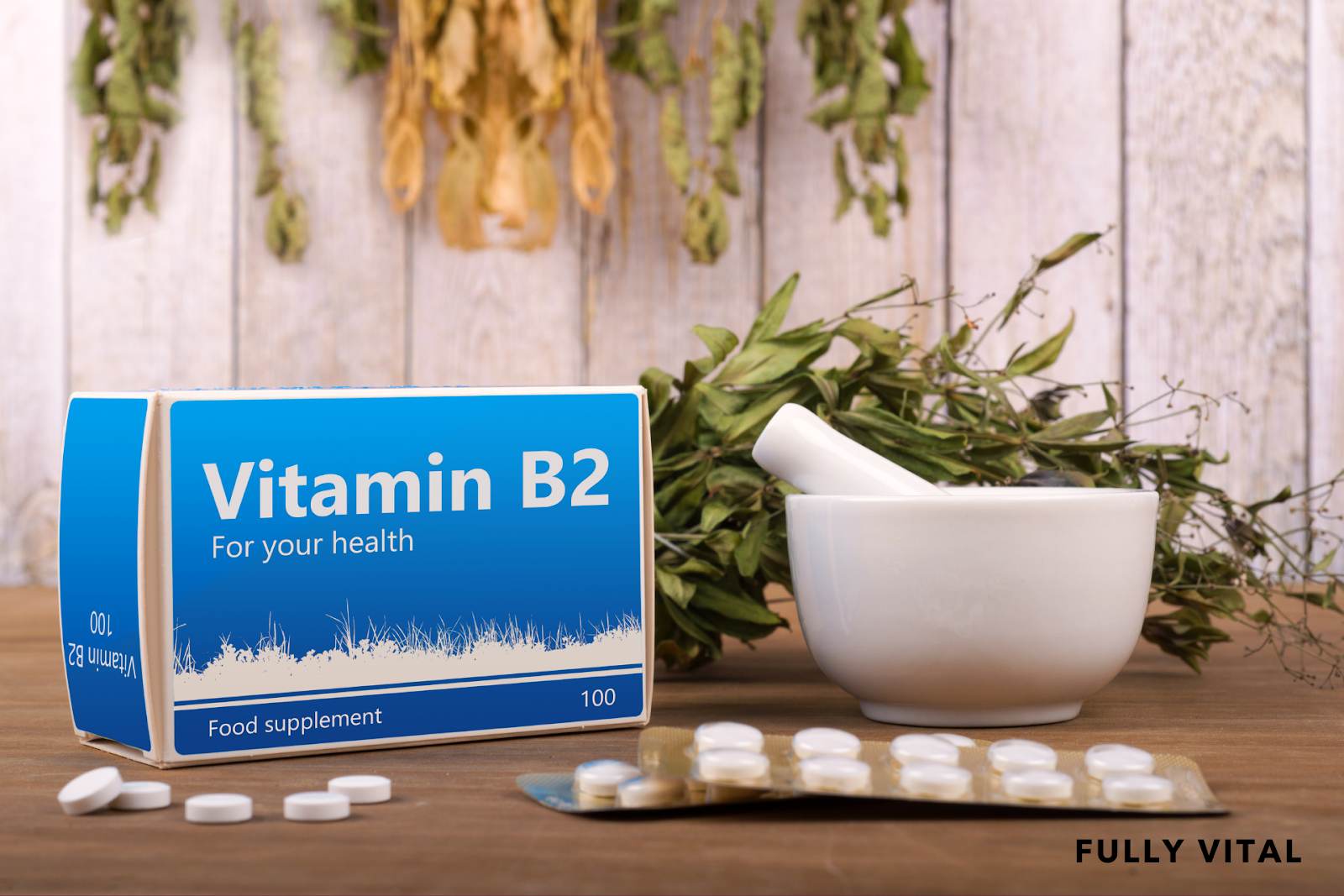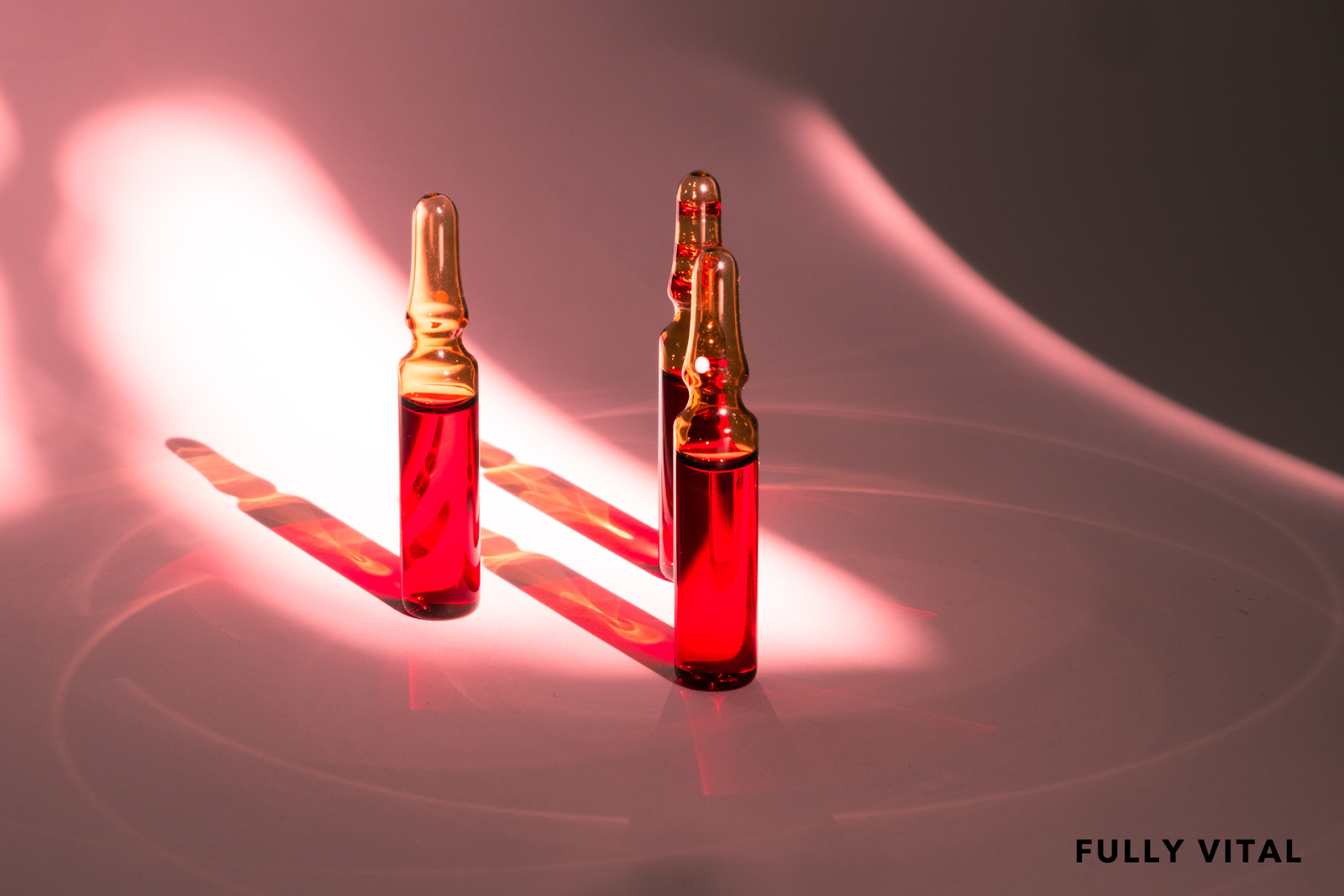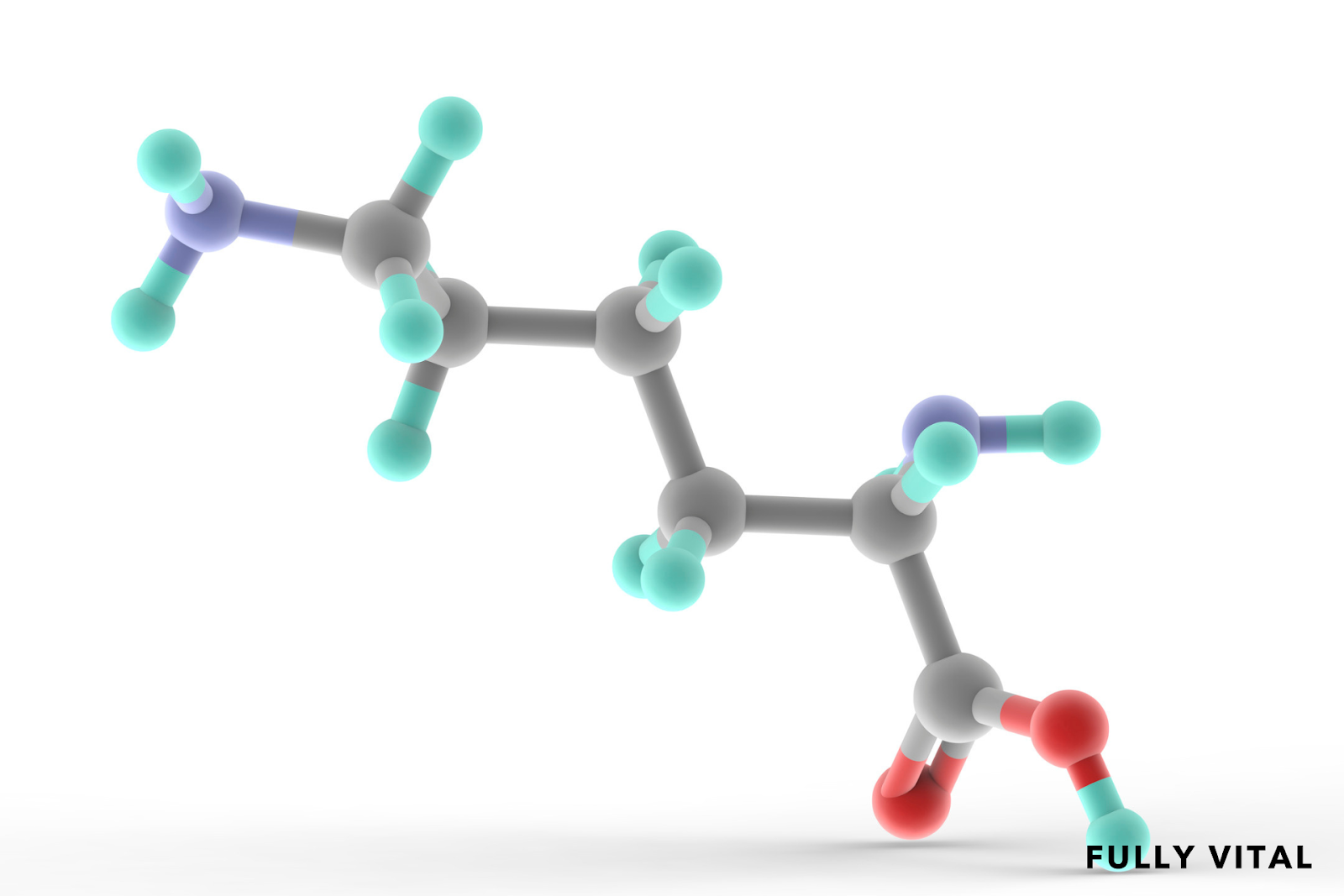
Riboflavin For Radiance: Shining A Light On Hair Health
When it comes to hair health, nutrition often takes a back seat to external care routines.
However, riboflavin, or vitamin B2, emerges as a key player in stimulating hair growth and maintaining vitality.
Despite its significance in cellular energy production and tissue maintenance, riboflavin is frequently overlooked.
This article sheds light on riboflavin's crucial role in promoting luscious locks.
Explore essential facts, from understanding its impact on hair to recognizing signs of deficiency and ensuring an adequate intake for a robust and shiny mane.
Delve into the details of riboflavin's relationship with hair health and gain insights to make informed decisions about your hair care and diet.
Let's uncover the world of riboflavin for fully vibrant hair.

I LOVE MY HAIR NOW
FullyVital hair serum and hair vitamins made tremendous improvements in my hair. I truly love my hair now.
Shop Hair ProductsWhat Is Riboflavin and Why Is It Essential for Your Hair?
Exploring the Basics of Riboflavin
Riboflavin, or vitamin B2, is essential for energy production and overall cellular function.
This water-soluble vitamin plays a foundational role in supporting hair growth by maintaining red blood cell health, ensuring a rich oxygen supply to hair follicles for the stimulation of new hair cell production.
Additionally, riboflavin contributes to the synthesis of amino acids and fatty acids, crucial building blocks for hair protein (keratin).
A deficiency in riboflavin can result in weakened strands, reduced elasticity, and lackluster, damage-prone hair.
Recognizing the crucial role of riboflavin is essential for maintaining overall health and the appearance of vibrant hair.
How Does Riboflavin Contribute to Hair Health?
Riboflavin's Mechanism of Action in the Body
Riboflavin is a facilitator; it enables various cellular processes by acting as a coenzyme.
Essentially, it assists enzymes in doing their jobs, particularly those involved in oxidative reactions crucial for energy production.
With its coenzymatic functions, riboflavin is vital for the metabolism of food molecules and the creation of ATP, the primary energy currency of the cell, which is necessary for every cell in the body, including hair follicle cells.
Linking Riboflavin to Strong and Lustrous Hair
Beyond energy metabolism, riboflavin's role in hair health extends to the maintenance of collagen.
Collagen is a structural protein that helps provide hair with elasticity and strength, as well as supports the tissues around hair follicles.1
Adequate riboflavin intake helps in the synthesis and repair of collagen, thus contributing to hair's resilience and vitality.
Additionally, riboflavin has antioxidant properties.
It helps to combat oxidative stress – an imbalance between free radicals and antioxidants in your body.
Oxidative stress can lead to damage in hair follicles due to the harmful effects of free radicals.
Riboflavin, alongside other antioxidants, works to neutralize free radicals, safeguarding the follicles and contributing to healthy hair growth.

What Happens to Your Hair When You're Low on Riboflavin?
Identifying a Riboflavin Deficiency
Riboflavin deficiency, while uncommon in developed countries thanks to fortified foods, can still occur and it often presents subtly at first.
Symptoms might include general fatigue and weakness, but when it comes to hair health, signs of not getting enough riboflavin can be more direct.2
You might notice your hair becoming brittle, dull, or the growth may slow down.
Some might even experience hair loss, which can be attributed to the decreased vitality of hair follicles lacking in adequate oxygen and nutrient supply.
The Impact of Low Riboflavin on Hair Quality
The diminished structural integrity of hair due to a deficiency in riboflavin can lead to changes that are structurally and aesthetically displeasing.
The hair shaft may become frail, split ends may become more frequent, and hair may be more prone to breakage.
Notably, because riboflavin is also important for skin health, a shortage of this vitamin could result in a scalp that's dry or flaky, providing an unhealthy foundation for hair growth.
Where Can You Get Riboflavin for Your Hair?
Riboflavin-rich Foods for Optimum Hair Health
The sun doesn't shine on the same dog's back every day, but riboflavin can shine on your hair health regularly through a balanced diet.
Foods naturally high in riboflavin include dairy products like milk and yogurt, eggs, lean meats, green vegetables like spinach and broccoli, nuts, and whole grains.
These foods are not just good for your general health; they pack a punch in the riboflavin department which translates into benefits for your hair.
Supplementing with Riboflavin: What You Need to Know
While diet is the most natural way to obtain riboflavin, some individuals may consider supplements to meet their nutritional needs.
Riboflavin supplements are available, and they can be particularly useful for people with specific dietary restrictions, like vegans and vegetarians, who might find it more challenging to obtain enough riboflavin through diet alone.
Why Is Riboflavin Important for Overall Health Beyond Hair?
The Wider Health Implications of Riboflavin
The benefits of riboflavin extend well beyond the scalp, impacting many aspects of overall health.
A sufficient amount of riboflavin is vital for red blood cell production and the transportation of oxygen throughout the body, which is not only essential for hair growth but also crucial for overall vitality.
Additionally, it supports eye health and may reduce the risk of cataracts, aids in the development and function of skin cells, and bolsters the immune system by maintaining a robust line of defense against pathogens.
The role of riboflavin in energy metabolism also comes into play in maintaining a healthy nervous system.
Moreover, there's evidence to suggest that riboflavin can help reduce the frequency of migraines in certain individuals.
It's truly a multitasker, with roles that mesh together to keep our bodies functioning at their best.
Can Riboflavin Help with Specific Hair Issues?
Riboflavin's Role in Combating Hair Concerns
Individuals dealing with specific hair problems often seek targeted solutions.
Riboflavin shows promise in addressing certain hair concerns due to its role in cellular growth and repair.
For those experiencing issues like brittleness or slow growth, increasing riboflavin intake might help improve these conditions by bolstering the physiological processes responsible for healthy hair.
Evidence and Studies on Riboflavin for Hair Conditions
While evidence for riboflavin's specific effects on hair concerns is not as robust as for other nutrients, studies have shown that a balanced intake of B vitamins, including riboflavin, plays a part in maintaining healthy hair.
It's important to note that while riboflavin can support hair health, it’s not a miracle cure for hair loss or other hair-related conditions, which often have complex causes and may require multifaceted treatment approaches.
What Does the Future Hold for Riboflavin and Hair Health Research?
Innovations and Forward-Looking Studies
The quest for understanding the complexities of hair health is unending, and riboflavin plays a significant role in this ongoing journey.
Research continues to evolve, with newer studies examining the broader implications of vitamin B2 and its interaction with other nutrients in promoting healthy hair.
From genetic studies that look at how riboflavin affects hair growth at the molecular level to clinical trials testing the effectiveness of riboflavin in treating hair loss, the potential for discovery is immense.3
In the field of nutricosmetics, products developed to enhance beauty from within, riboflavin is gaining attention as a key ingredient.
Future products may harness the power of riboflavin in combination with other vitamins and minerals to create formulations tailored for hair health support.

Energize Your Hair with Fully Vital!Are split ends taking a toll on your gorgeous mane? Is your hair showing signs of aging quicker than you'd prefer? At Fully Vital, we've introduced a potent selection of scientifically supported hair growth products crafted to rejuvenate and enhance the vitality of your locks.
Invest in the health of your hair today and witness a transformation, as it becomes more resilient, stronger, and radiant. It goes beyond mere hair care – it's a boost to your self-esteem and overall wellness. Ready to embark on the path to healthier, beautiful hair? Initiate your journey to vitality with our assortment of scientifically backed hair growth products. |
Final Thoughts On Riboflavin
In a nutshell, riboflavin is an unsung hero in the pantheon of hair health.
This vitamin, also known as vitamin B2, is a cornerstone of metabolic processes that undergird not just the luminosity and strength of your hair but also the well-being of your entire body.
From aiding in the synthesis of crucial proteins like keratin to protecting hair follicles from oxidative stress, riboflavin is a key ingredient for a radiant mane.
Remember, maintaining a riboflavin-rich diet is paramount for those looking to improve hair health.
While deficiency is rare, it does have clear negative consequences for hair quality, so acknowledging the signs and addressing them with nutritious foods or supplements when necessary is smart self-care.
We've woven a tapestry of insights about riboflavin, from practical tips on incorporating it into your diet to optimism about future research that may unlock even more benefits for hair health.
Ultimately, the take-home message is that a balanced intake of this vitamin can contribute significantly to the vitality of your hair.
By taking stock of the wealth of knowledge surrounding riboflavin and its impact on hair, one can tread a path towards not only a fuller and enriched experience of hair care but also a step forward in holistic health.
So, shine a light on your hair health by giving riboflavin the attention it deserves in your nutritional choices.
Check out our recent blogs:
- Tinea Amiantacea: Understanding And Preventing Hair Condition
- Laser Hair Therapy: An Effective Solution For Hair Growth
- Pygeum Bark: Boost Hair Growth Naturally
Frequently Asked Questions About Riboflavin
Is riboflavin safe to take every day?
Yes, it is safe to take riboflavin daily as part of a balanced diet.
Riboflavin is a water-soluble vitamin, and any excess is excreted through urine.
Are there any side effects of taking too much riboflavin?
Riboflavin is generally considered safe, and there are no known serious side effects associated with high intakes.
However, consuming very high doses may lead to an intense yellow discoloration of the urine.
Can riboflavin improve the condition of the scalp?
Yes, riboflavin can contribute to a healthy scalp by supporting skin cell turnover and repair, which can result in a healthier scalp environment.
How quickly can you see results in hair health after increasing riboflavin intake?
Improvements in hair health from increased riboflavin intake can take several months since hair grows slowly and cellular changes take time.
Does cooking destroy riboflavin in foods?
Riboflavin can be lost from foods during cooking, especially if cooked in water or exposed to light.
Steaming or microwaving may help retain riboflavin content.
Can riboflavin supplements improve energy levels?
Yes, because riboflavin is crucial for energy production, ensuring adequate intake can help maintain optimal energy levels.
Are there any specific conditions that increase the need for riboflavin?
Yes, conditions such as pregnancy, breastfeeding, certain illnesses, and high levels of physical activity can increase the body's need for riboflavin.
Are there any interactions between riboflavin and other vitamins or medications?
Riboflavin can interact with some medications, and it works in synergy with other B vitamins.
It's essential to discuss with a healthcare provider if you're on medication.
Do some people have a greater risk of riboflavin deficiency?
Individuals with certain dietary restrictions, chronic health conditions, or those who consume alcohol excessively may be at greater risk for deficiency.
Can a riboflavin deficiency affect more than just hair health?
Yes, riboflavin deficiency can lead to symptoms affecting different parts of the body, including skin disorders, eye problems, and neurological symptoms like headaches.
Sources:
- Wu, M., & Crane, J. S. (2019, April 21). Biochemistry, Collagen Synthesis. Nih.gov; StatPearls Publishing. https://www.ncbi.nlm.nih.gov/books/NBK507709/
- Navid Mahabadi, Aakriti Bhusal, & Banks, S. W. (2019, July 3). Riboflavin Deficiency. Nih.gov; StatPearls Publishing. https://www.ncbi.nlm.nih.gov/books/NBK470460/
- Kennedy, D. (2016). B Vitamins and the Brain: Mechanisms, Dose and Efficacy—A Review. Nutrients, 8(2), 68. https://doi.org/10.3390/nu8020068








